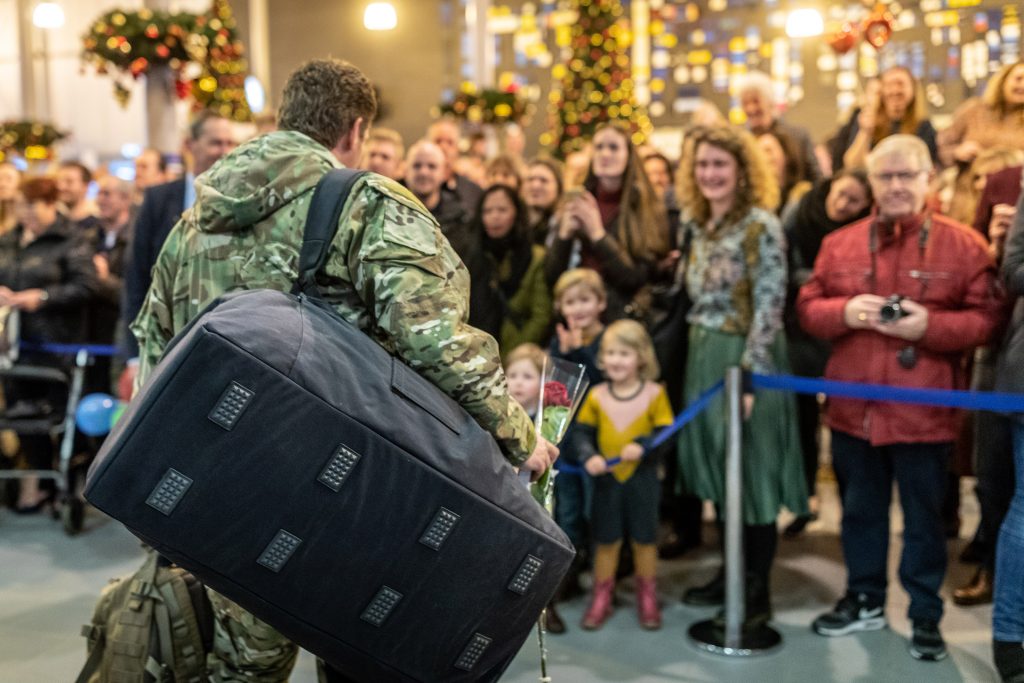
On December 31st 2018, the participation of Netherlands F-16s in the international fight against so-called Islamic State (ISIS) in Iraq and Syria came to an agreed end, after almost four years of airstrikes.
Despite conducting precision airstrikes, the Coalition has not always been successful in preventing civilian casualties – with the alliance overall admitting at least 1,139 civilian deaths from its actions to date. Yet it is nearly impossible to find out when or even whether Dutch F-16s have been responsible for civilian casualties, making them the least transparent member of the international alliance.
Now that the F-16s and their pilots have safely returned home, Airwars is arguing that it is time for the Netherlands to take proper responsibility, and follow the good practice examples of other Coalition countries in demonstrating genuine public transparency.
Unclear figures
The Coalition conducts its own assessments into civilian harm, for example publishing monthly casualty reports. However their findings differ significantly from those of independent research initiatives such as Airwars. There is for example a sharp contrast between the 1,139 civilian death conceded by the Coalition to date, and the 7,316 or more civilian deaths assessed as likely according to the most conservative estimate of Airwars investigations.
This can partly be explained by the methods used by the Coalition to assess claims of civilian harm. The Coalition estimates the number of civilian casualties primarily based upon aerial observations, while Airwars estimates the numbers based on local reports from the ground. A New York Times investigation also made clear that the Coalition’s civilian casualty monitoring team applies a locational assessment radius of just 50m and often does not record the locations of delivered munitions. Claims of civilian harm are therefore dismissed too easily.
Even so, the US-dominated civilian casualty cell based within the Coalition has striven to identify civilian harm where it can – and to make public those findings. The same cannot be said of Dutch officials at the national level.
The Netherlands Ministry of Defence claims to be transparent because all allegations of civilian harm are referred to the Public Prosecution Service for assessment, even though these investigations are conducted behind closed doors. While the Defence Ministry admits responsibility for killing or injuring civilians in up to three airstrikes in Iraq investigated by the Public Prosecution Service, it continues to refuse to identify the dates and locations of these same events, or even the number of civilians harmed, citing operational security reasons.
The reluctance of the Netherlands to publish strike details of the assessed incidents sits at odds with greater civilian harm transparency from all other Coalition allies – and with recent broader improvements in levels of Dutch public accountability. Since the renewal of the air campaign in January 2018, the Netherlands has started including the location of the nearest large settlement to a strike in its weekly updates, making it easier for Dutch actions to be cross referenced against public claims over a time period.
However, officials are still refusing to make this same information public for historical Dutch actions between 2014-2016 – including those incidents investigated by the Public Prosecution Service.
The Ministry of Defence had long denied during the war against ISIS that its F-16s were causing civilian harm. That’s what makes it so important for the Ministry of Defence to provide information that enables external scrutiny.
Public transparency by other Coalition allies
The refusal of the Netherlands to disclose the dates and locations of the three events in which its aircraft are known to have harmed civilians runs counter to the public transparency evidenced by many other Coalition allies in recent years. The Netherlands was the fourth country (in addition to the United States, Australia and the United Kingdom) that publicly admitted to having caused civilian harm as a result of their actions against ISIS.
However, all three other countries have explicitly identified incidents in which their aircraft were involved – with no discernible impact of this disclosure either on operational or national security. In addition, there was no attempt by domestic media or others in those countries to single out pilots for blame. Over the duration of the war against ISIS, specific civilian harm allegations have been investigated and publicly commented upon by the United Kingdom; France; Belgium; Denmark; Canada; the United States; and Jordan. In each case, these close allies felt able to engage publicly on civilian harm issues without apparent fear of operational or national security blowback. The Netherlands should follow these examples of good practice, Airwars believes.
Public transparency on civilian harm issues is important for several reasons. First, Dutch citizens have a right to know what kind of war is fought in their name and at what cost. Second, the government is obstructing the natural process of justice for Iraqis and Syrians affected by Dutch airstrikes. According to the Coalition, each member of the alliance remains individually responsible for the civilians it kills or injures – and this includes making any compensation or solatia payments. Presently, the Defence Ministry chooses to withhold crucial information on the location and dates of four investigated strikes – where civilian harm appears likely in most events. This makes it impossible for the relatives of those Iraqis who fell victim to bombardments by the Netherlands to know in which events Dutch aircraft have been implicated.
Back in 2015, the UN’s Human Rights Council emphasized that all states conducting strikes in Iraq and Syria “are under an obligation to conduct prompt, independent and impartial fact-finding inquiries in any case where there is a plausible indication that civilian casualties have been sustained” and crucially, “to make public the results.” Let 2019 be the year that the Netherlands takes proper public responsibility for its military actions.